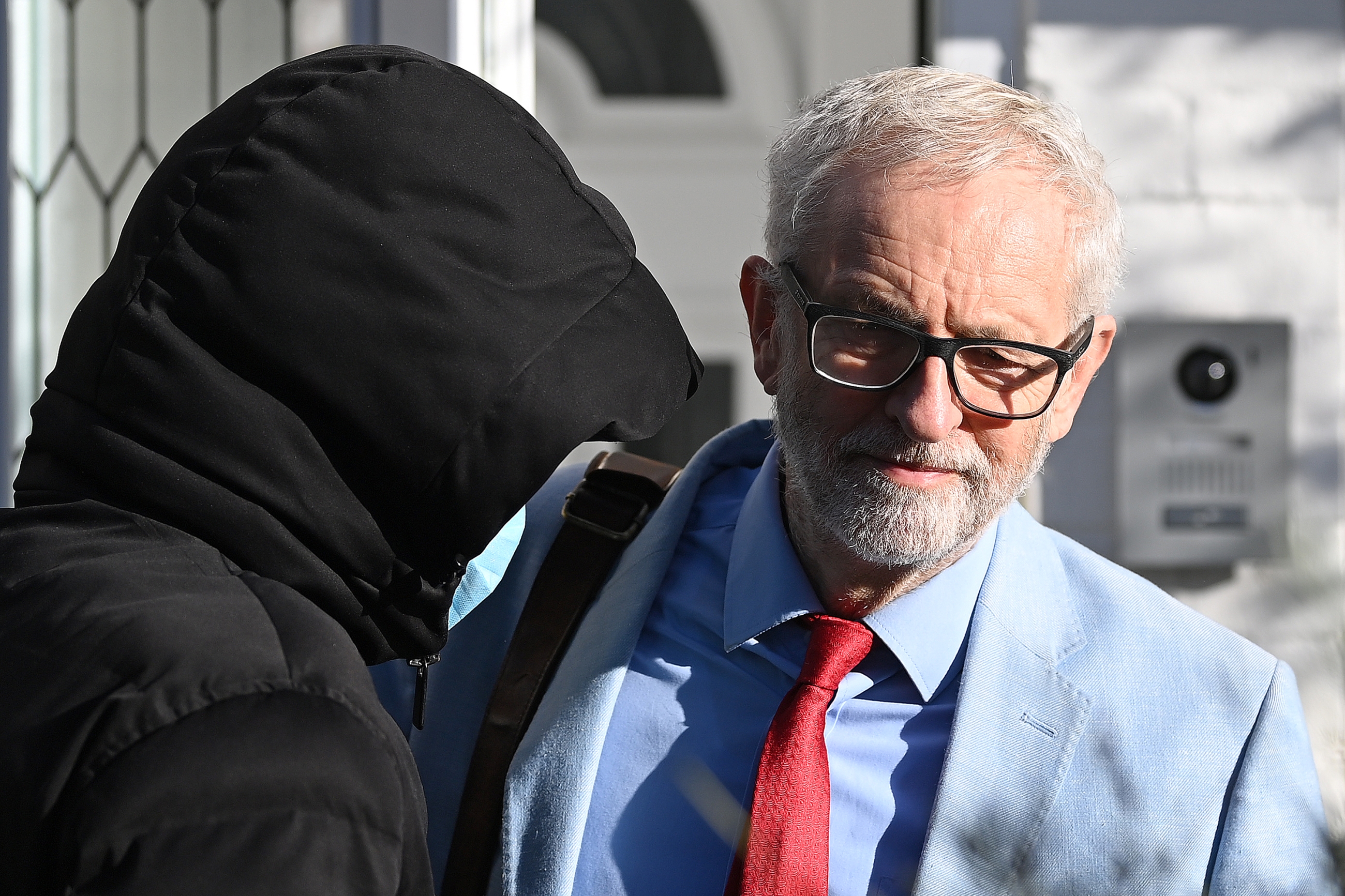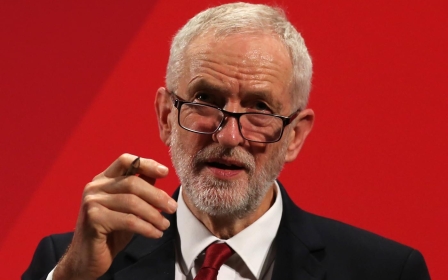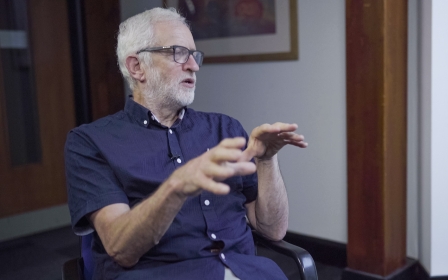Keir Starmer rejects return of Jeremy Corbyn as Labour MP

The leader of Britain's main opposition Labour Party said Jeremy Corbyn would not be reinstated as its MP, despite his membership of the party being restored on Tuesday, weeks after he was suspended over his response to antisemitism claims.
In a tweet on Wednesday, Keir Starmer said the former leader had "undermined" a report by the Equality and Human Rights Commission in October that said the Labour Party had acted "unlawfully" with regards to accusations of antisemitism in the party.
New MEE newsletter: Jerusalem Dispatch
Sign up to get the latest insights and analysis on Israel-Palestine, alongside Turkey Unpacked and other MEE newsletters
At the time, Corbyn accepted the recommendations but said he did not accept all the findings, insisting the scale of antisemitism in the party was "dramatically overstated".
In response, Labour moved to suspend Corbyn "pending investigation", sparking outrage among many of the party's members.
"The point I wished to make was that the vast majority of Labour Party members were and remain committed anti-racists deeply opposed to antisemitism," Corbyn said on the day of his suspension, going on to say that antisemitism "has been responsible for so many of history’s greatest crimes against humanity".
Earlier on Tuesday, Corbyn sought to draw a line under the issue.
"I hope this matter is resolved as quickly as possible, so that the party can work together to root out antisemitism and unite to oppose and defeat this deeply damaging Conservative government," he wrote on Facebook.
However, Starmer on Wednesday said he would not be restored to his position as a Labour MP, meaning he would continue to sit as an independent.
"In those circumstances, I have taken the decision not to restore the whip to Jeremy Corbyn. I will keep this situation under review," tweeted Starmer.
Starmer's decision followed a negative reaction to Corbyn's reinstatement by some MPs and the Jewish Labour Movement.
Corbyn, a longtime supporter of Palestinians, has consistently faced accusations of anti-Jewish prejudice, in part over his past meetings with the Palestinian group Hamas and the Lebanese movement Hezbollah. He has denied all such allegations.
The party has in turn been plagued by antisemitism accusations since he was elected leader in September 2015.
His successor Starmer has been trying to make a clean break from the Corbyn era as he seeks to turn around Labour's fortunes after four successive general election defeats since 2010.
One of Starmer's more controversial moves took place in June when he sacked shadow education secretary Rebecca Long-Bailey for sharing an article on social media in which it was suggested that the US police officer who killed George Floyd in Minnesota had received training from Israeli forces.
At the time, Starmer accused Long-Bailey of purposefully sharing an "antisemitic conspiracy theory".
Middle East Eye delivers independent and unrivalled coverage and analysis of the Middle East, North Africa and beyond. To learn more about republishing this content and the associated fees, please fill out this form. More about MEE can be found here.





